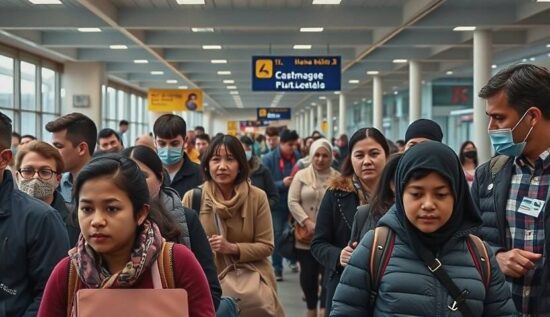Thousands of Migrants Deported in 2024
Russia has seen a significant increase in the number of migrants deported from the country, with over 80,000 individuals removed in the past year, according to the Federal Execution Service. This marks a nearly double increase from the previous year, when more than 44,000 migrants were deported.
The surge in deportations comes in the wake of a terrorist attack in Moscow’s Crocus City Hall in March, which led to a tightening of the government’s policies towards foreign nationals and migrant workers. The four suspects, all Tadjik citizens, had been accused of terrorist activities, with two of them having previously been in the country illegally.
In the aftermath of the attack, police raids and street checks have increased, and stricter measures have been taken to regulate the presence of migrants in the country. Many regions have also restricted the activities of migrant workers in certain professions.
Furthermore, Russia has established a register for illegal migrants, which, once entered, can lead to a range of restrictions, including the loss of driving privileges, banking services, and the ability to register property, get married, or enroll children in school.
According to First Deputy Interior Minister Alexander Gorovoi, there are currently around 6.17 million people with foreign nationality living in Russia, with an estimated 740,000 illegal migrants also present in the country. The top 10 countries of origin for these migrants are Uzbekistan, Tadjikistan, Kyrgyzstan, Belarus, Ukraine, Armenia, Azerbaijan, Kazakhstan, China, and Turkmenistan.
The rise of parallel societies and migrant-related crime has been a frequent topic in Russian media, with migrants complaining of official harassment and growing xenophobia in Russian society. Meanwhile, the analysis portal Rybar has highlighted the significant role of foreign structures in controlling mass migration to Russia.
In addition to the tightening of migration policies for so-called “labour migrants” another trend is emerging in Russia. The country is seeking to attract professionally established family members who “share traditional Russian spiritual and moral values” with a simplified immigration procedure. The government is also promoting a “Return to Russia” project, which has so far been used by several thousand people to resettle in the country.





